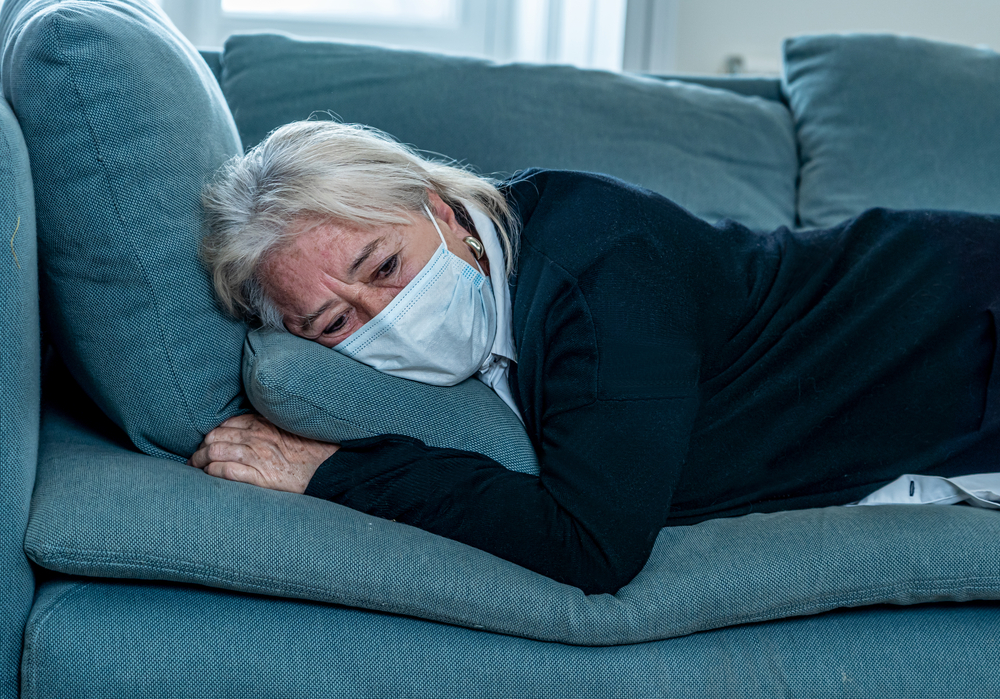We have been living in a changed world for nearly 2 years. The Covid-19 pandemic has been around for 2 years and has changed our lives in many ways. During this pandemic, we have suffered major losses such as the loss of family and friends, however, we have also suffered a wave of other losses. These range from financial losses, social losses, physical and even emotional losses. These “other losses” may not compare to the death of a loved one, however they do impact our quality of life and it is for this reason that these losses may also be significant. A build-up of these “other losses” may lead to grief and or depression.
We generally associate the word grief with the death of a person. Surprisingly though, grief is not a reaction specific to death. Instead, it is a reaction to a significant loss. The keyword being, significant. The value of the “item” lost is determined by the person who has suffered the loss. A loss that may be significant to one person may not be significant to another, for example: an outgoing person would consider the restrictions on social interactions as a significant loss, whereas a homebody who hardly socialised would not find that loss significant.
The pandemic has dramatically affected our lives, in that we’re losing family and friends but also in that we’re suffering more ambiguous losses that may not be acknowledged by those around us. We attend funerals, we have rituals and grieve for the loss of a loved one, we have not been taught how to heal from ambiguous loss or even to identify and articulate the importance of these losses.
The “other losses” we may have experienced during Covid-19, include:
- Financial security – for some, the pandemic has resulted in unemployment, salary cuts as well as the fear of losing one’s job. Financial security is linked to stress around feeding one’s family and maintaining a roof over one’s head and the fears associated with paying rent, school fees, etc.
- Health – fears of contracting Covid-19 has led to increased health risks for those with pre-existing conditions, as they stop going for treatment in order to avoid exposure while at the hospital
- A sense of personal freedom – social distancing measures as well as home lockdowns may leave individuals feeling like they are prisoners in their own homes. This is more so in homes where abuse is prevalent
- Hope for the future – future plans, be it vacation plans, plans on relocating, getting a job or even graduating have been impacted by the pandemic. The future has become uncertain and the loss of hope for the future can be extremely painful
- Ceremonies – the celebration of milestones be it funerals, weddings or graduations, has been impacted by the pandemic. Weddings have been postponed, graduations have been cancelled and some events have been moved online. This is also painful for those who do not attend in person, attending virtually does not provide the same level of comfort
The issue we now face is that there are so many different ambiguous losses, more than the ones listed above, and we may have lost more than 2 or 3 on the list. It is not surprising that we have a lot of feelings to deal with, feelings such as denial, anger, sadness, frustration, numbness, anxiety, panic and guilt. All these feelings can be encapsulated under one word, grief.
To cope with all these “other losses,” we first have to accept and acknowledge that we are grieving. How one deals with grief is a very individualistic process which does take time, patience and support. We need to mourn our losses, accepting the reality of the loss, adjusting to it, all while trying to celebrate the good and taking care of ourselves and more importantly; being kind to ourselves. We cannot grieve alone, we need support, to lean on friends and family or seeking professional support when all the “other losses” become overwhelming. We are not alone in this, it is human nature to seek connection and support at all times, but more so in times of loss. Covid-19 has proven itself to have staying power, it is unclear just how long our lives will be impacted by the pandemic, how many more losses we may have to endure and whether or not our lives will ever return to pre-pandemic norms. We therefore have to learn to adapt and cope with an ever-growing list of losses.
The Author: Cassandra Jones (Humanitas Intern)
Here is a little bit more about her:
 My academic career began with an undergraduate degree in Physiology and Psychology from the University of Pretoria to an Honours in Applied Psychology through UNISA. I have always been fascinated and obsessed with how powerful the human mind is and its link to our bodies. How our psychological well-being is intricately linked to our physical well-being. How both demand to be taken care of and should not be prioritised at the expense of the other.
My academic career began with an undergraduate degree in Physiology and Psychology from the University of Pretoria to an Honours in Applied Psychology through UNISA. I have always been fascinated and obsessed with how powerful the human mind is and its link to our bodies. How our psychological well-being is intricately linked to our physical well-being. How both demand to be taken care of and should not be prioritised at the expense of the other.
I enjoy working with people. Every person is unique, one experience can be interpreted in various ways depending on a myriad of factors, background, life experience, challenges, etc… I firmly believe we can grow more by listening to and learning from someone else’s story.
As your counsellor, I want to hold the space for you as you share the gift of being vulnerable with a stranger. I do not take this privilege lightly, and commit to walking beside you on your journey, wherever it may lead us.


